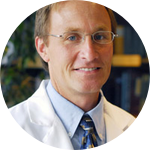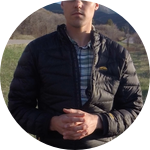About This Project
New mining practices, referred to often as “fracking”, have unlocked significant reserves of natural gas. The value of the gas is substantial, but the potential for environmental impact is largely unexplored. For example, unlocking natural gas by fracking also can liberate natural radioactivity. This research aims to understand if areas of intense hydraulic fracturing can increase levels of radioactivity in nearby surface waters and sediments. Watch the Video at the rightAsk the Scientists
Join The DiscussionWhat is the context of this research?
Hydraulic fracturing has been used for decades to improve efficiency of natural gas extraction. However, recent technological advances in horizontal drilling are revolutionizing the natural gas industry.
These techniques enhance gas extraction by allowing operators to not only drill vertically, but also horizontally for thousands of feet through the gas-bearing formation. The substantial increase of surface area in the formation requires extraordinary volumes of fluids (>5 million gallons per well) for an efficient fracture job.
Although these technologies address the global demand for energy, they may also liberate high levels of radioactive materials (ex: uranium) that are naturally contained in the geologic formations.
What is the significance of this project?
Natural gas operations are often in close proximity to residential areas, particularly on the Front Range of Colorado. These operations may have numerous unintended and undesirable environmental and public health impacts.
For example, levels of radioactivity liberated in hydraulic fracturing liquids are known to exceed public health standards by several orders of magnitude. Unfortunately, very little is known about the extent of environmental contamination and potential for deleterious health effects from these radioactive materials.
Research that characterizes the levels and migration potential of radioactive materials into drinking water sources is critical to determine whether unconventional drilling is releasing radioactive materials that may persist for thousands of years.
What are the goals of the project?
- Sample water and sediment at an identified site in the Front Range of Colorado with intense hydraulic fracturing activity (site location confidential to protect property owners)
- Fully characterize naturally-occurring radioactive materials (NORM) in water and sediments
- Quantitate gamma- and beta-emitters (ex: radium-228, lead-210, thallium-208)
- Measure alpha-emitters that are often neglected in radioactive contamination surveys (ex: natural uranium, radium-226, radon-222 gas, polonium-210)
- Measure levels of non-radioactive metals that affect environmental mobility of NORM
- Model the change in radioactivity contamination over time (may increase)
- Publish findings in open-access, scientific journals
Budget
Unconventional drilling is expanding globally faster than scientists, environmental/public health officials, and regulators can handle. Given the political nature of the topic, government officials have been slow to offer traditional funding opportunities for this important environmental research. We believe this research is critical to enable stakeholders to make informed decisions when unconventional drilling operations are introduced in their neighborhoods. Radioactivity is particularly concerning because it may be introduced onto land or into water supplies without anyone knowing, as it cannot be seen, tasted, or smelled even at levels that are detrimental to health.
Let's face it, environmental research is expensive to complete. In general the bulk of grant money is allocated to salaries. However, Andrew Nelson was fortunate to be awarded the University of Iowa Presidential Graduate Research Fellowship (the highest honor for incoming graduate students), which completely covers his salary and school fees. Thus for this project we are only seeking funds to cover the costs of materials, sampling, and publication. Although typically more expensive than traditional journals, we are committed to publishing in open-access journals as we believe the general public should be aware of any impacts of hydraulic fracturing and unconventional drilling.
Meet the Team
Team Bio
EducationPhD, Chemical Oceanography, Florida State University, Department of Oceanography, Tallahassee, FL
MS, Marine Chemistry, Florida State University, Department of Oceanography, Tallahassee, FL
BA, Russian Language, University of South Florida, Department of Linguistics, Tampa
Academic Appointments
2014
Associate Professor of Radiology - Division of Nuclear Medicine
Associate Professor of Internal Medicine, Radiation Oncology
2009
Assistant Professor of Radiology - Division of Nuclear Medicine
Assistant Professor of Internal Medicine, Radiation Oncology
2004
Radiochemist, National Institute of Standards and Technology, Nuclear Medicine Program. Gaithersburg, MD
1996
Graduate Researcher/Radiochemist, National Institute of Standards and Technology, Gaithersburg, MD
Website
http://www.medicine.uiowa.edu/dept_secondary_apr.aspx?appointment=Radiation%20Oncology&id=mischult
Michael K Schultz
Dr. Schultz is an Associate Professor in the Department of Radiology at the University of Iowa, with secondary appointments in the Free Radical and Radiation Biology; Human Toxicology; and Medical Scientist Training Programs. Dr Schultz also co-directs the Radiochemistry Program in the Department of Chemistry. His research interests in environmental radioactivity focus on naturally occurring radioactive material (NORM) associated with liquid and solid waste resulting from unconventional drilling and hydraulic fracturing. This year, Dr. Schultz has been invited to speak on this topic at the American Chemical Society National Meeting, the National Environmental Monitoring Conference, and ASTM International. A recent article (Nelson et al., Env Sci Techn Let, March 11, 2014) was selected for an ACS Editor’s Choice Award and the article, first authored by PhD graduate student and Presidential Fellow Andrew Nelson, is featured on the cover of the journal. Funded by the University of Iowa’s Center for Health Effects of Environmental Contaminants, Dr. Schultz's laboratory (with collaborator Tori Forbes, Department of Chemistry) has begun field studies on the environmental geochemical behavior of NORM in natural surface water systems impacted by unconventional drilling and hydraulic fracturing operations and waste treatment facilities. Mike earned his PhD in Oceanography at Florida State University, studying the environmental radiochemistry of anthropogenic and natural radionuclides in terrestrial and aquatic systems.
Andrew Nelson
Andy Nelson earned a B.A. in biochemistry from the University of Colorado in 2009 and an M.S. in environmental engineering from the Colorado School of Mines in 2010. As a research assistant in the Department of Molecular, Cellular, and Developmental Biology (MCDB) at the University of Colorado, Mr. Nelson studied free radical signaling mechanisms relevant in aging and tumor progression. In 2012, Andy was awarded the University of Iowa Presidential Graduate Fellowship to pursue a PhD in the Interdisciplinary Human Toxicology Program. He is currently a doctoral candidate under the mentorship of Dr. Schultz, with whom he studies radioactivity associated with unconventional drilling (hydraulic fracturing and horizontal drilling) of shale gas. Much of Mr. Nelson’s work to date has focused on developing methods that are suitable for monitoring levels of naturally occurring radioactive materials (NORM) present in wastes generated by unconventional natural gas exploration. Andy’s research has helped develop partitioning models that will be used in the development of sound waste management strategies for solid and liquid wastes generated by unconventional drilling.
Press and Media
See Andrew Nelson with MSNBC: http://www.msnbc.com/ronan-farrow/watch/inside-ame...
Read Dr. Schultz interview with C&E News: http://cen.acs.org/articles/92/web/2014/03/Analyti...

Listen to Andrew and Dr. Schultz present to the National Analytical Management Program (NAMP), a partnership with the US Department of Energy (DOE) and the US Environmental Protection Agency (EPA): https://www.icln.org/index.cfm/documents/doe-educa...

Additional Information
See our open-access (American Chemical Society Editor's Choice) publication in Environmental Science and Technology Letters: http://pubs.acs.org/doi/abs/10.1021/ez5000379
Project Backers
- 18Backers
- 6%Funded
- $1,410Total Donations
- $78.33Average Donation

